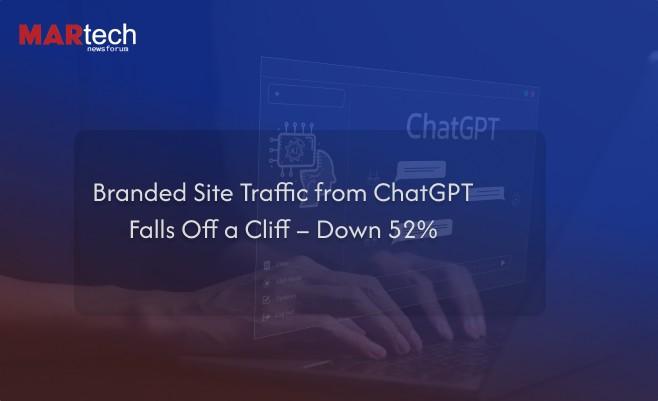
In recent times, there has been a noticeable decrease in the branded site traffic from ChatGPT, an artificial intelligence chatbot developed by OpenAI. According to recent data, there has been a significant drop of 52% in the number of users visiting branded websites through the chatbot. This decline has raised concerns among digital marketers and businesses who have been leveraging ChatGPT for their marketing and customer engagement efforts. In this article, we will delve into the potential reasons behind this decline, the impact it has on businesses, and whether this is an opportunity for improvement or a cause for concern.
Reasons for the Decline
There could be several reasons behind the sharp decline in branded site traffic from ChatGPT. Some of the potential factors include:
- Improved search engine algorithms: Search engines like Google have been continuously updating their algorithms to provide users with more accurate and relevant search results. This has led to a decline in the effectiveness of ChatGPT’s search capabilities, as users are now more likely to find the information they need directly from search engines.
- User preference for direct search: Many users now prefer to use search engines directly to find information rather than relying on chatbots like ChatGPT. This could be due to the increased accuracy and relevance of search results provided by search engines, as well as the convenience of accessing information without the need for additional interactions with a chatbot.
- Lack of personalization: ChatGPT’s ability to provide personalized search results and recommendations has been limited. As a result, users may find it more beneficial to use search engines that offer a more tailored experience, based on their search history and preferences.
Impact on Businesses
The decline in branded site traffic from ChatGPT can have several implications for businesses, including:
- Reduced visibility: With fewer users visiting branded websites through ChatGPT, businesses may experience a decrease in their online visibility. This could lead to a decline in website traffic, which could ultimately impact sales and revenue.
- Decreased engagement: The decline in branded site traffic from ChatGPT could also result in reduced engagement with customers. As fewer users are interacting with the chatbot, businesses may find it more challenging to maintain a strong connection with their audience and provide timely support and assistance.
- Increased reliance on search engines: With users now more likely to find information directly through search engines, businesses may need to focus more on optimizing their websites for search engine visibility. This could involve investing in search engine optimization (SEO) strategies and improving the overall user experience on their websites.
Opportunities for Improvement
While the decline in branded site traffic from ChatGPT may be cause for concern, it also presents an opportunity for businesses to improve their digital marketing strategies and adapt to changing user preferences. Some potential opportunities include:
- Enhancing search engine optimization (SEO): As users are now more likely to find information through search engines, businesses should invest in SEO strategies to improve their website’s visibility and attract more organic traffic.
- Personalizing the user experience: To better compete with search engines, businesses should focus on providing a more personalized and tailored experience for their users. This could involve leveraging user data and preferences to deliver more relevant content and recommendations.
- Developing alternative chatbot solutions: While ChatGPT may no longer be the most effective tool for driving branded site traffic, businesses should explore alternative chatbot solutions that can better meet the needs of their audience. This could involve developing custom chatbots or partnering with other chatbot providers that offer more personalized and engaging experiences.
Conclusion
The decline in branded site traffic from ChatGPT is a clear indication that user preferences and search behavior are constantly evolving. While this may be a cause for concern for businesses that have relied heavily on ChatGPT for their marketing and customer engagement efforts, it also presents an opportunity for improvement. By investing in SEO strategies, providing a more personalized user experience, and exploring alternative chatbot solutions, businesses can adapt to changing user preferences and maintain a strong connection with their audience.